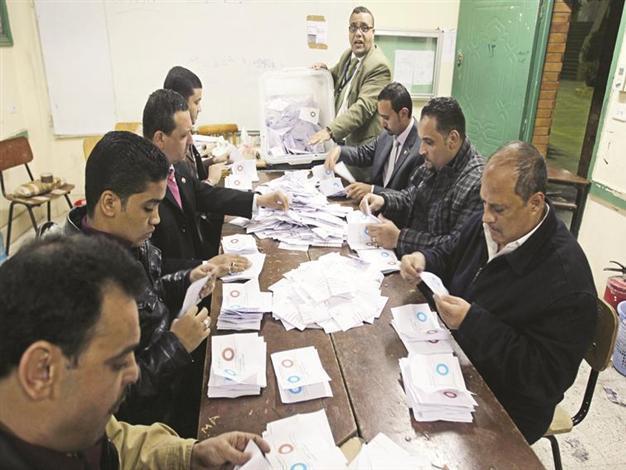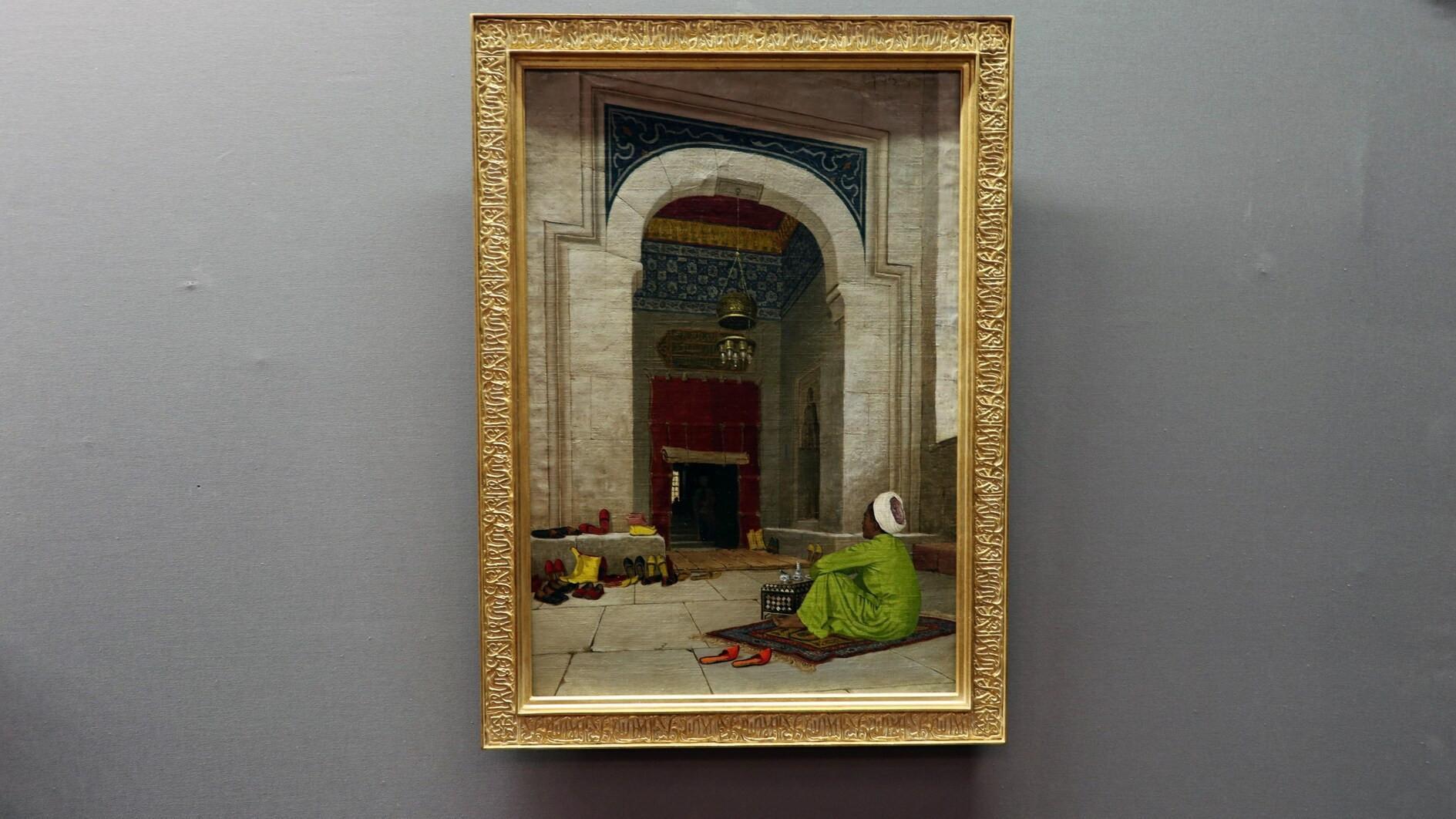Egypt opposition cries ‘fraud’ in referendum, plans appeal
CAIRO

AFP photo
Egypt’s opposition said yesterday it would appeal the referendum that voted in a new Constitution backed by ruling Islamists, vowing to maintain a struggle that has spawned weeks of protests and damaging instability.Polling “fraud and violations” skewed the results of two-stage referendum, the final leg of which was held on Dec. 22, the National Salvation Front said. “We are asking the [electoral] commission to investigate the irregularities before announcing official results [scheduled for today],” a Front member, Amr Hamzawy, told a Cairo news conference.
“We will continue the fight for the Egyptian people. We are questioning the results,” Khaled Dawoud, the Front’s spokesman said. “We don’t think the results reflect the true desires of the Egyptian people.”
“The referendum is not the end of the road. It is only one battle,” added another member, Abdel Ghaffer Shokr.
Many judges boycotted supervising the crucial vote.
Germany immediately backed the call for a transparent investigation into the results. “The new Constitution can only meet acceptance if the process of its adoption is beyond reproach,” Foreign Minister Guido Westerwelle said, also adding that it was “not the power of the street but rather the spirit of compromise and tolerance that should determine the way forward for Egypt.”
Low turnout, violations overshadow legitimacy
State media and President Mohamed Morsi’s supporters in the Muslim Brotherhood said around 64 percent of the 16.6 million voters approved the Constitution, according to unofficial early tallies.
The passage of the Constitution would be a victory for Islamist President Mohammed Morsi. The Freedom and Justice Party, the Brotherhood’s political arm, said in a statement that it hoped the approval would prove a “historic opportunity” to heal Egypt’s divisions and launch a dialogue to restore stability and build state institutions.
But the comparatively low turnout of 32 percent of eligible voters, as well as allegations by the opposition of voting violations, threatened to undermine the constitution’s legitimacy and to keep Egypt polarized. Aside from a vocal opposition, Morsi is also facing a fragile economy, weathered by nearly two years of political turmoil and accompanying violence as well as nearly a month of political crisis that preceded the vote.
Dec. 22’s voting in 17 of Egypt’s 27 provinces was the second and final round of the referendum. Preliminary results released early by Morsi’s Muslim Brotherhood showed that 71 percent of those who voted Dec. 22 said “yes,” after 99 percent of polling stations were accounted for. In the first round of voting, about 56 percent said “yes” to the charter. The turnout was then about 32 percent.
Approval of the Constitution would trigger parliamentary elections in two months’ time to replace an Islamist-dominated assembly that was dissolved by Egypt’s constitutional court before Morsi’s election in June. In the meantime, all legislative business is being handled by the Senate, also under the sway of Islamists. In a gesture towards “national dialogue,” Morsi on Dec. 22 appointed 90 additional senators, including eight women and 12 Christians.
















